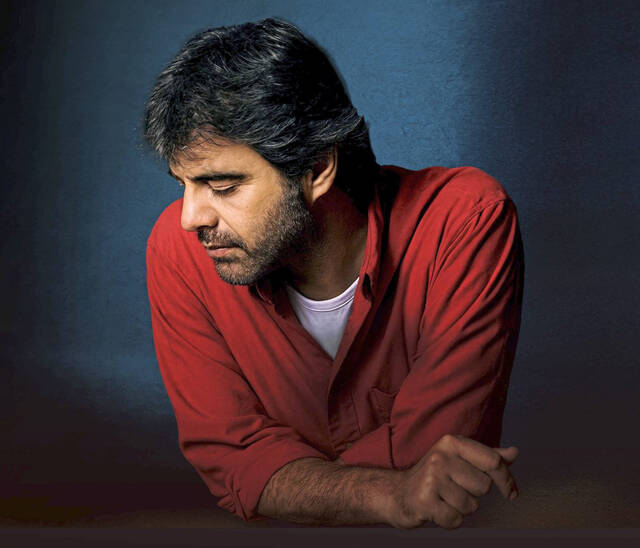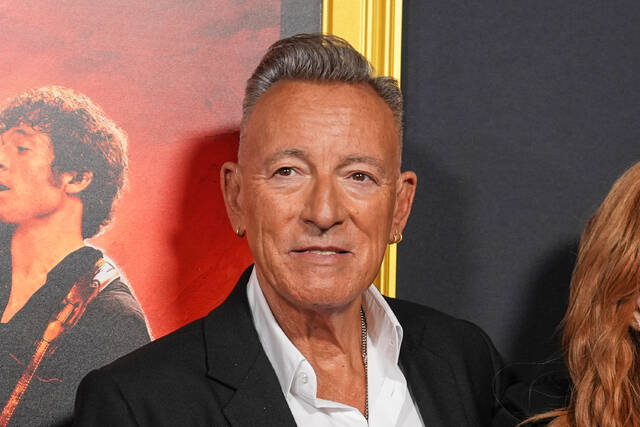Sitting in class at Allderdice High School, Peyton Klein realized she knew everyone in the room except one student.
“There was a girl sitting behind me in a hijab who I didn’t know,” said Klein, now a freshman at Stanford University. “I asked her name, and we started talking.”
The classmate’s name is Khwala, a Syrian refugee.
The two became friends.
Through getting to know Khwala, Klein, a Squirrel Hill native, realized she wanted to do more to bridge the gap between English-speaking students and those who aren’t fluent in the language.
In 2016, she founded Global Minds Initiative, a student-led movement to combat discrimination in schools, which included an after-school program that bridges immigrant and native English speaking students.
Klein was recently recognized by American Girl for her work with Global Minds. The company is celebrating its 35th anniversary by “shining a spotlight on four young women making a difference in their own communities.”
Klein is one of them. She and three other young people being honored by American Girl are Edna Chavez, Yasmine Mabene and Naomi Wadler.
Read their stories here.
American Girl released “World by Us” dolls Makena, Evette and Maritza. The three dolls help to give voices to issues such as racial equality, environmentalism and keeping immigrant families together, some of the same causes Klein and the other young people are passionate about.
The goal in creating the “Conversations for Change” series is to highlight these four female trailblazers who are making meaningful change, said Susan Jevens, associate public relations manager for American Girl, owned by Mattel, via email.
“When we heard about the important work Peyton is doing through her organization Global Minds to foster inclusivity and cultural understanding, we knew we wanted to include her inspiring story as part of the series,” Jevens said. “We hope that bringing awareness to Peyton – and the positive impact Global Minds is having on youth across the country – will inspire others to amplify their voices for good, too.”
Klein was gifted an American Girl doll in her likeness. The doll is not for sale.
“I care about diversity and inclusion,” said Klein, who worked on Hillary Clinton’s presidential campaign. “The American Girl is a positive role model for young girls.”
Klein owned the American Girl doll named Samantha that played the violin. Klein plays the violin. She recalled shopping at American Girl stores and going to tea with her grandparents in New York and the Doll Hair Salon in Chicago.
“Growing up with my doll, Samantha, was a key part of my childhood, and it makes me proud to see this community come together to talk about important issues,” Klein said on the American Girl website.
Klein said after launching Global Minds, she began receiving messages from all over the world.
“Many of them shared that the challenges of intolerance we faced at Allderdice were not unique,” Klein said.
Global Minds currently has engaged more than 2,600 students across 18 middle and high schools in the U.S. and Canada.
Klein said her conversations with Khwala led to “a mutual understanding and an abundance of humanity.” Klein learned Khwala likes to make Harissa — a Syrian dessert — and wants to be a lawyer. Klein shared her love of dark chocolate and that she likes to ask a lot of questions.
“I knew if others could participate in our exchange of stories and friendship, we would not only combat intolerance, but also build empathy,” said Klein, whose organization has a new home as part of the World Affairs Council of Pittsburgh, which is helping to sustain the youth-led model.
“While many often call my story remarkable, I’m here to tell you that it’s not,” said Klein, who is also on Forbes’ 30-under-30 education list. “I say this not to minimize the great impact of Global Minds, but to remind you don’t have to be a superhero to change the world. Those affecting change in communities across the country are ordinary people, like you and me. We all see injustices and problems waiting to be solved every day; the courageous choice is to act with the confidence that your actions can make a difference.”
Klein said her inspiration to include all people comes from her grandmother Margie Klein, who worked for a non-profit in Philadelphia.
“I learned about empathy from her,” Peyton Klein said. “It is important to learn other peoples’ stories and I felt comfortable going out of my comfort zone, because I’ve watched my grandmother do the same.”
Klein said it’s important to accept people as they are, which she learned through meeting Khwala.
“All it took was a simple hello,” Klein said. “We started chatting in homeroom daily. Discomfort gradually receded into mutual trust as our friendship blossomed. With each conversation, I learned something new. She shared her experiences at a Turkish refugee camp, her disinterest in biology, her journey from Syria. We shared stories of home and adventure, of hardship and vulnerability. After months of getting to know each other, our conversations began to focus on more intimate struggles, including the injustices Khwala faced at school.”
Klein has helped to change those injustices, beginning with a simple “Hello.”







